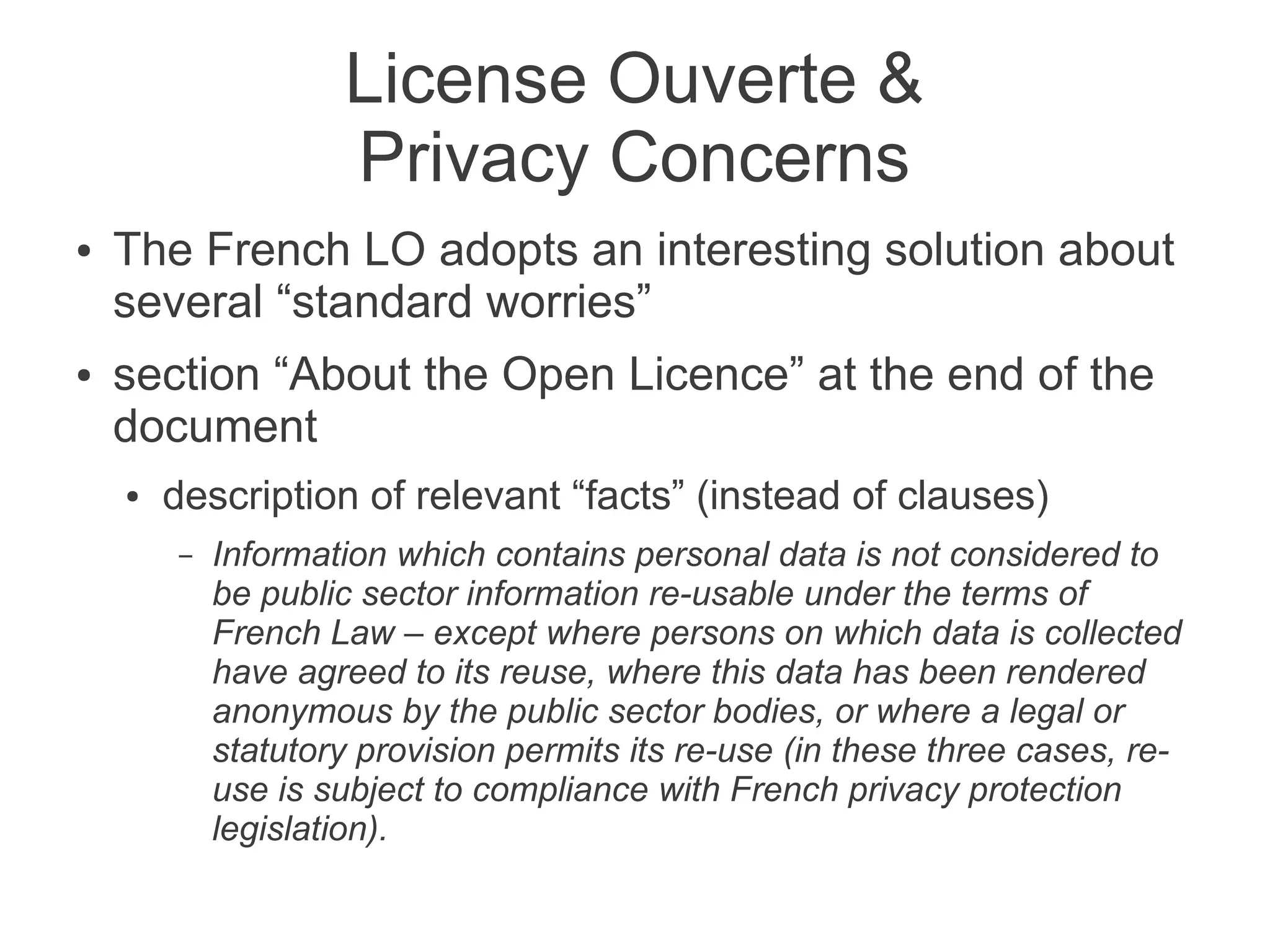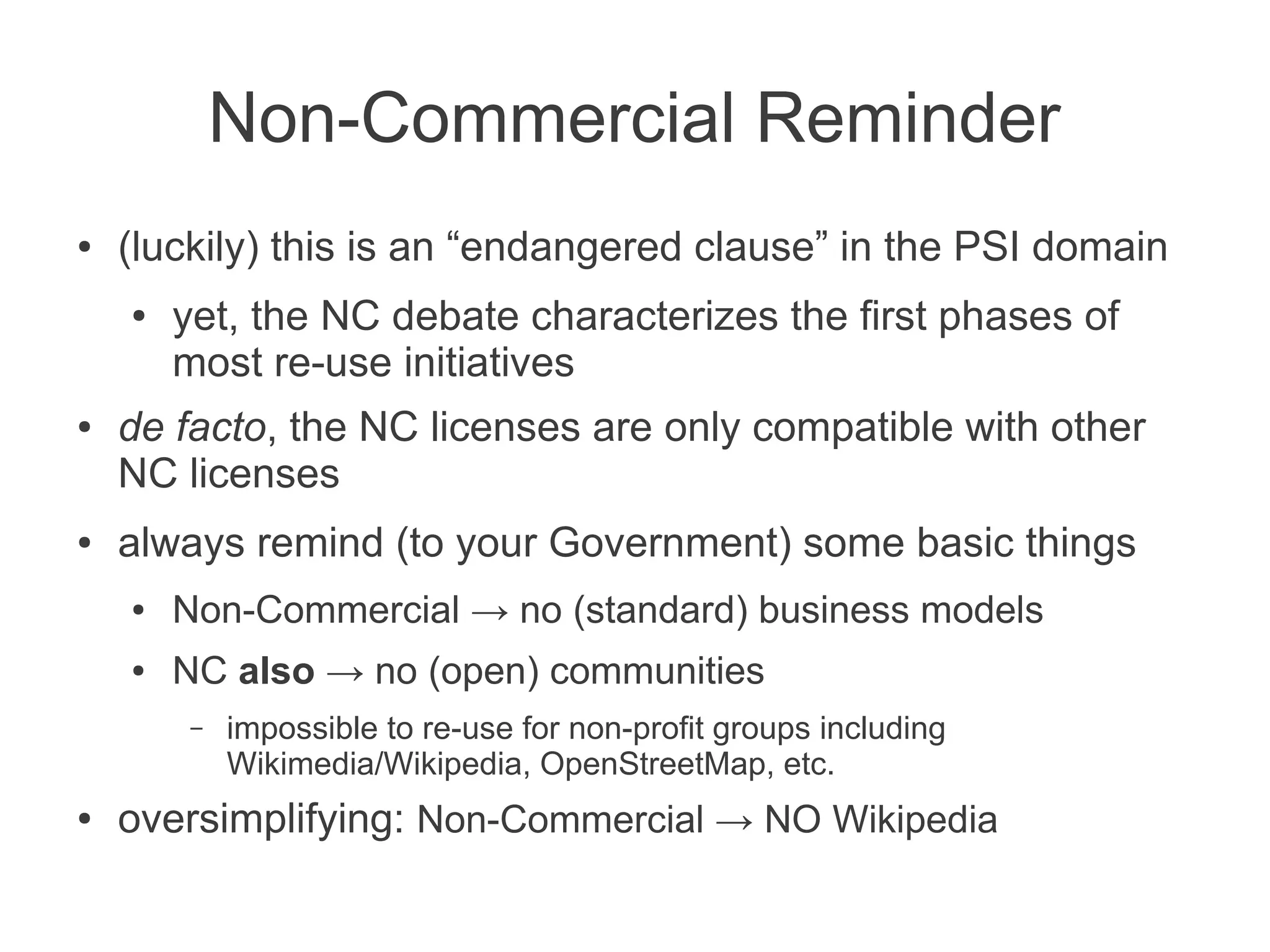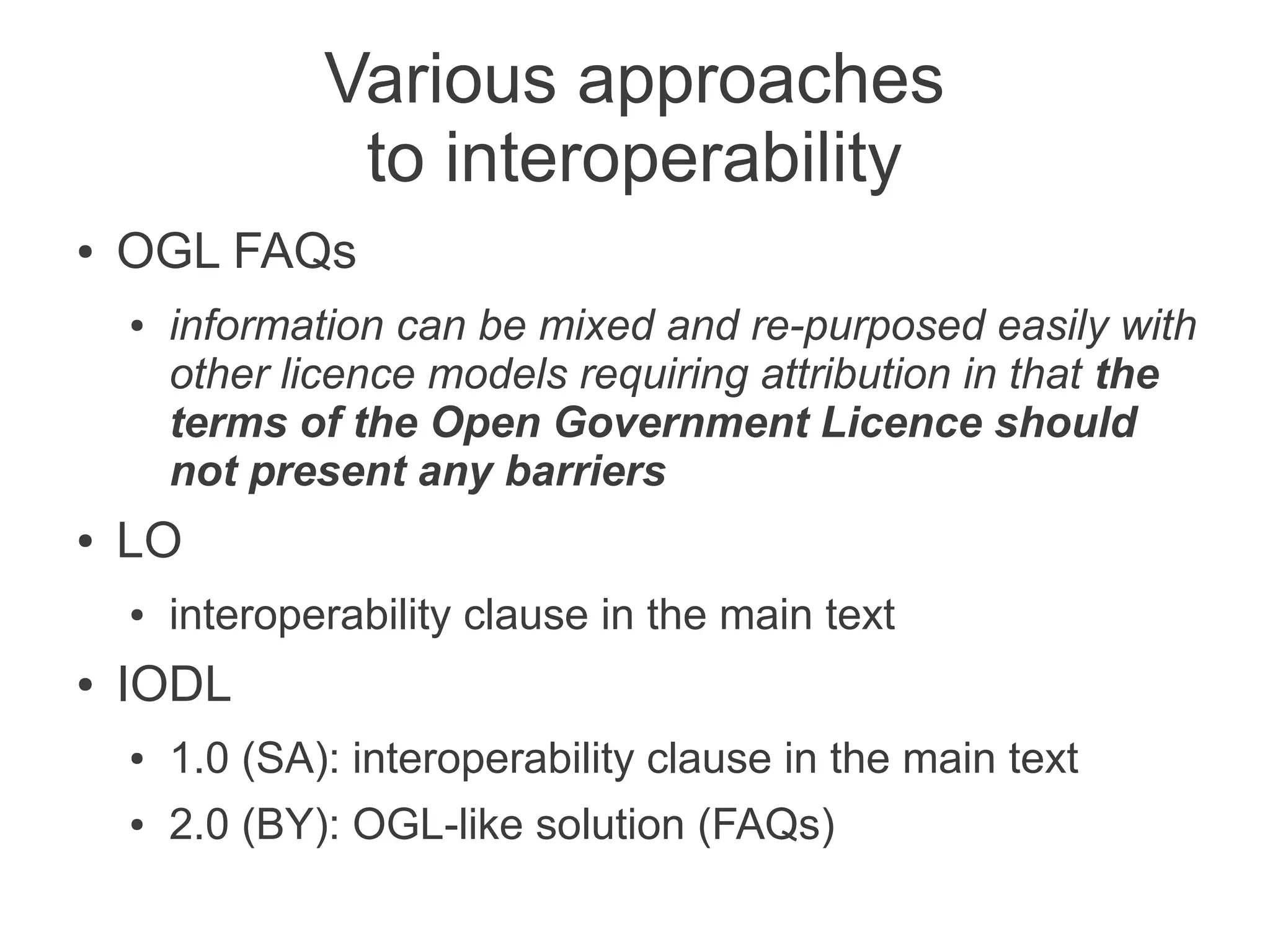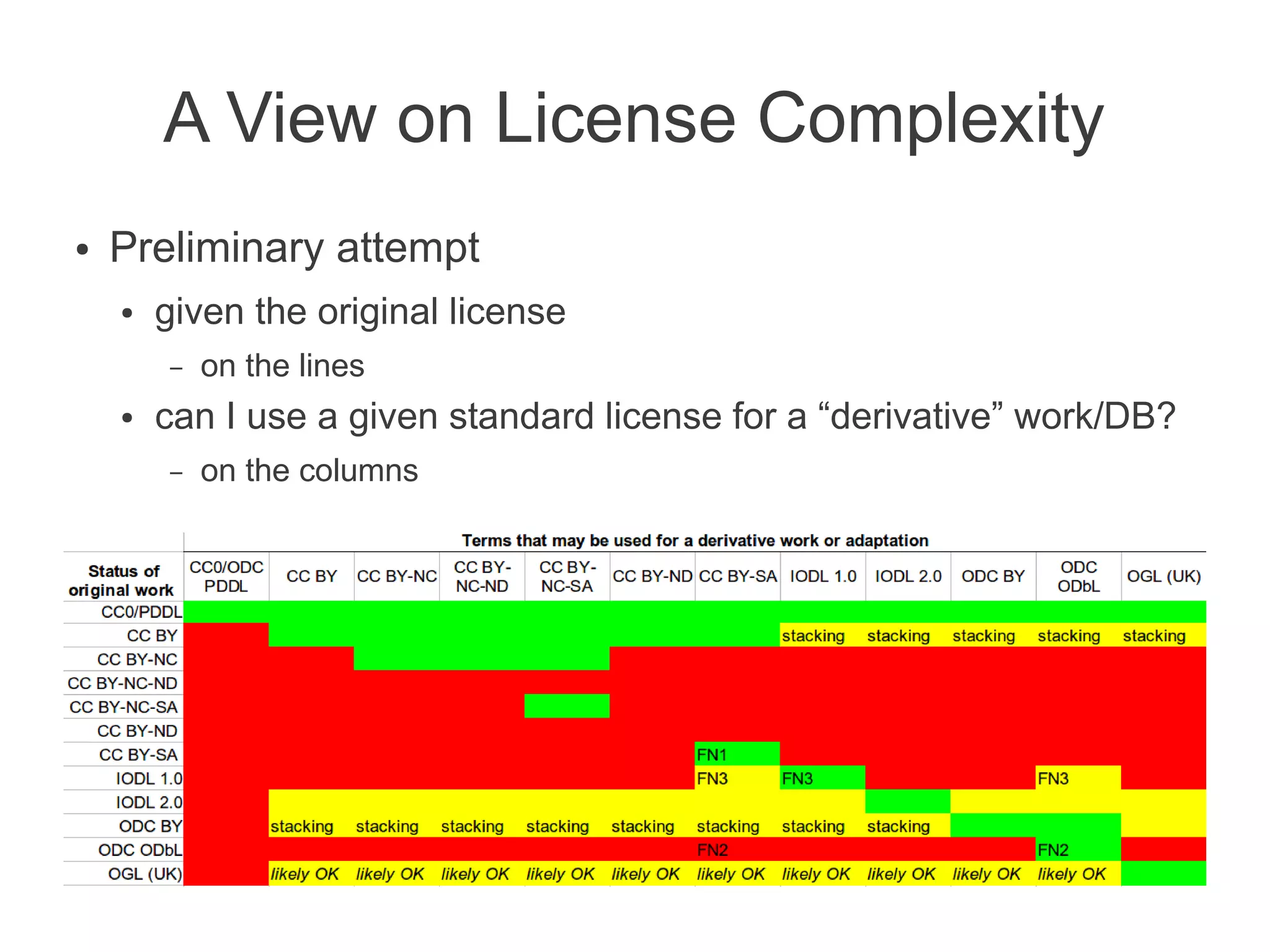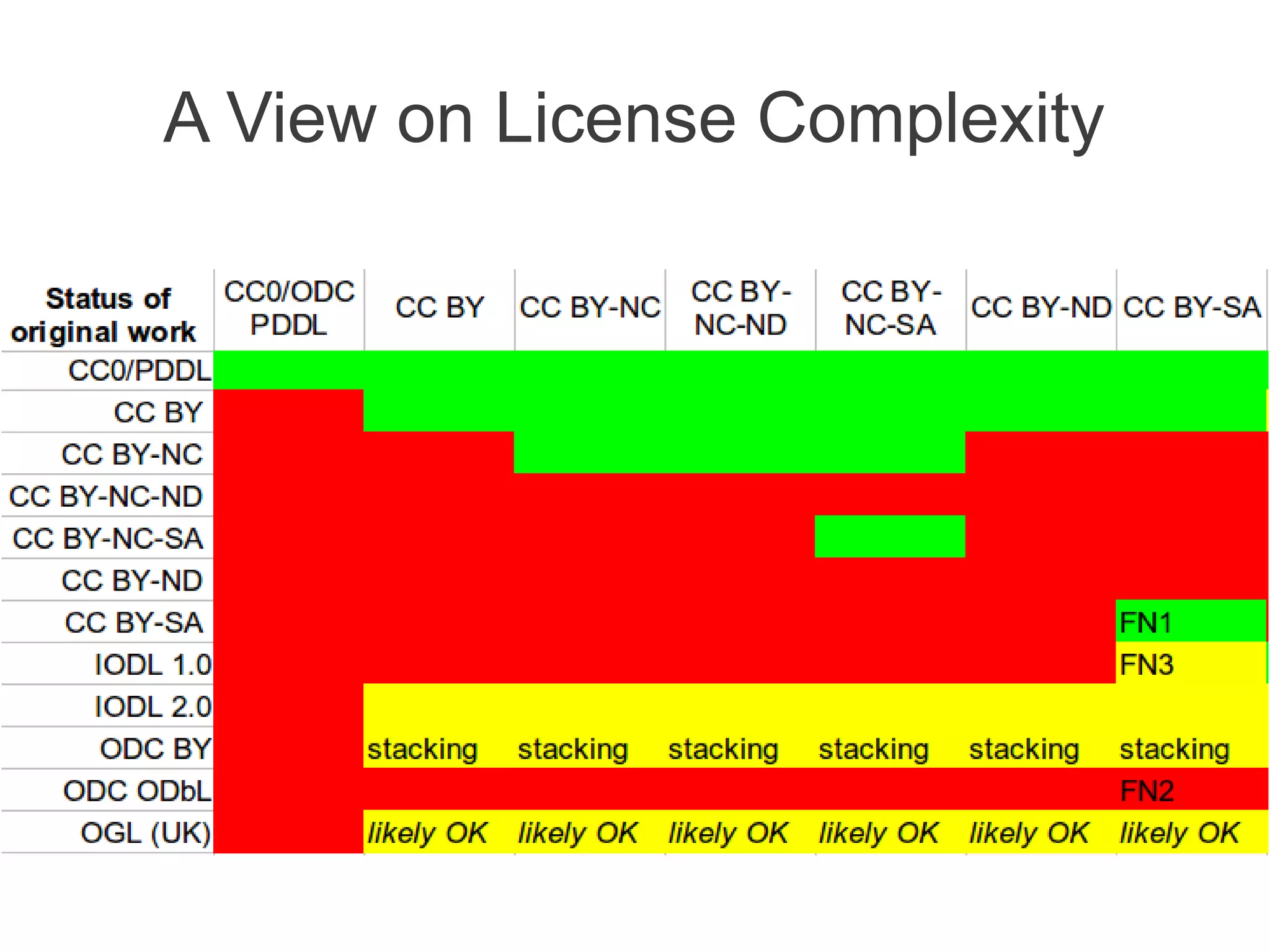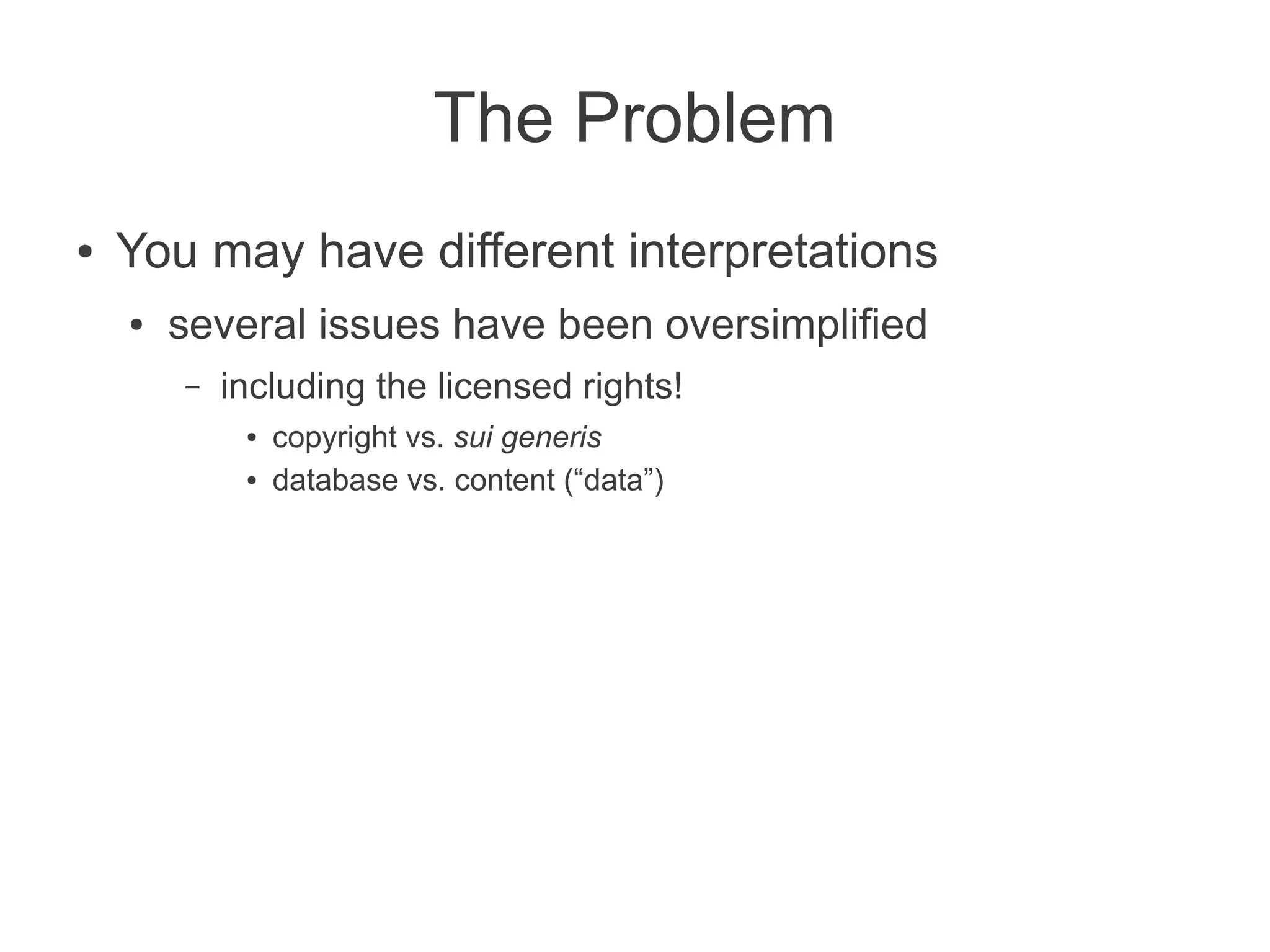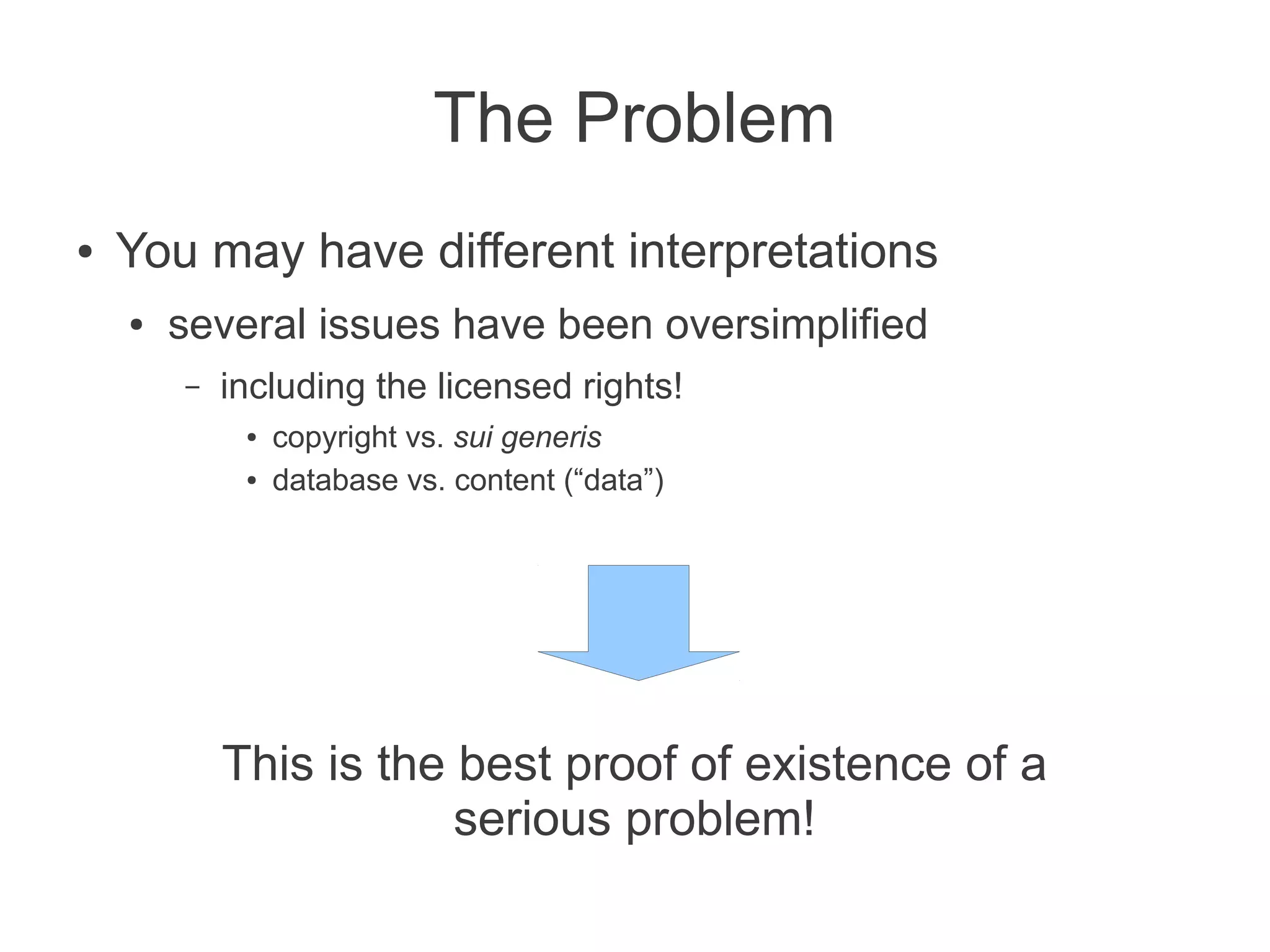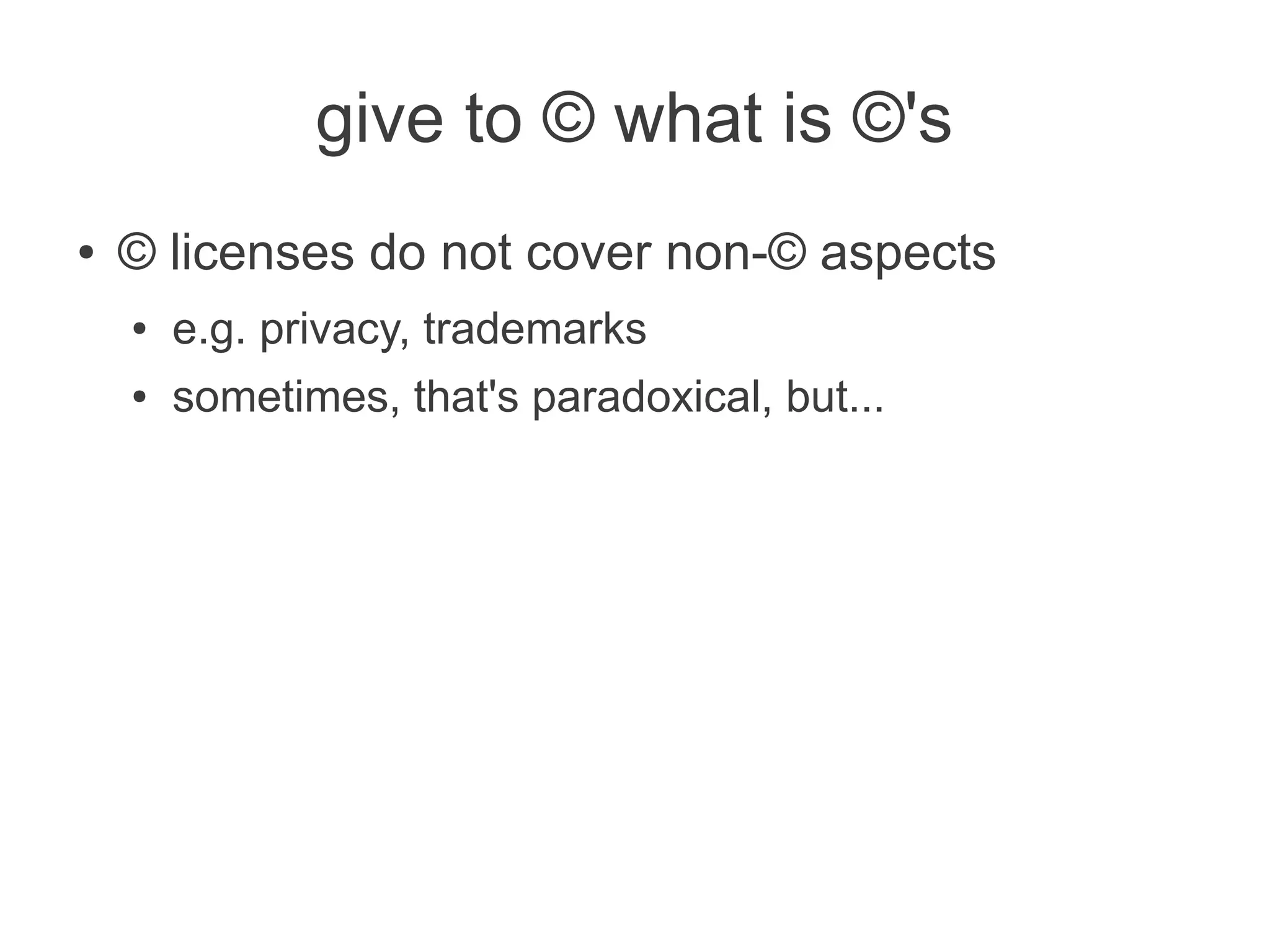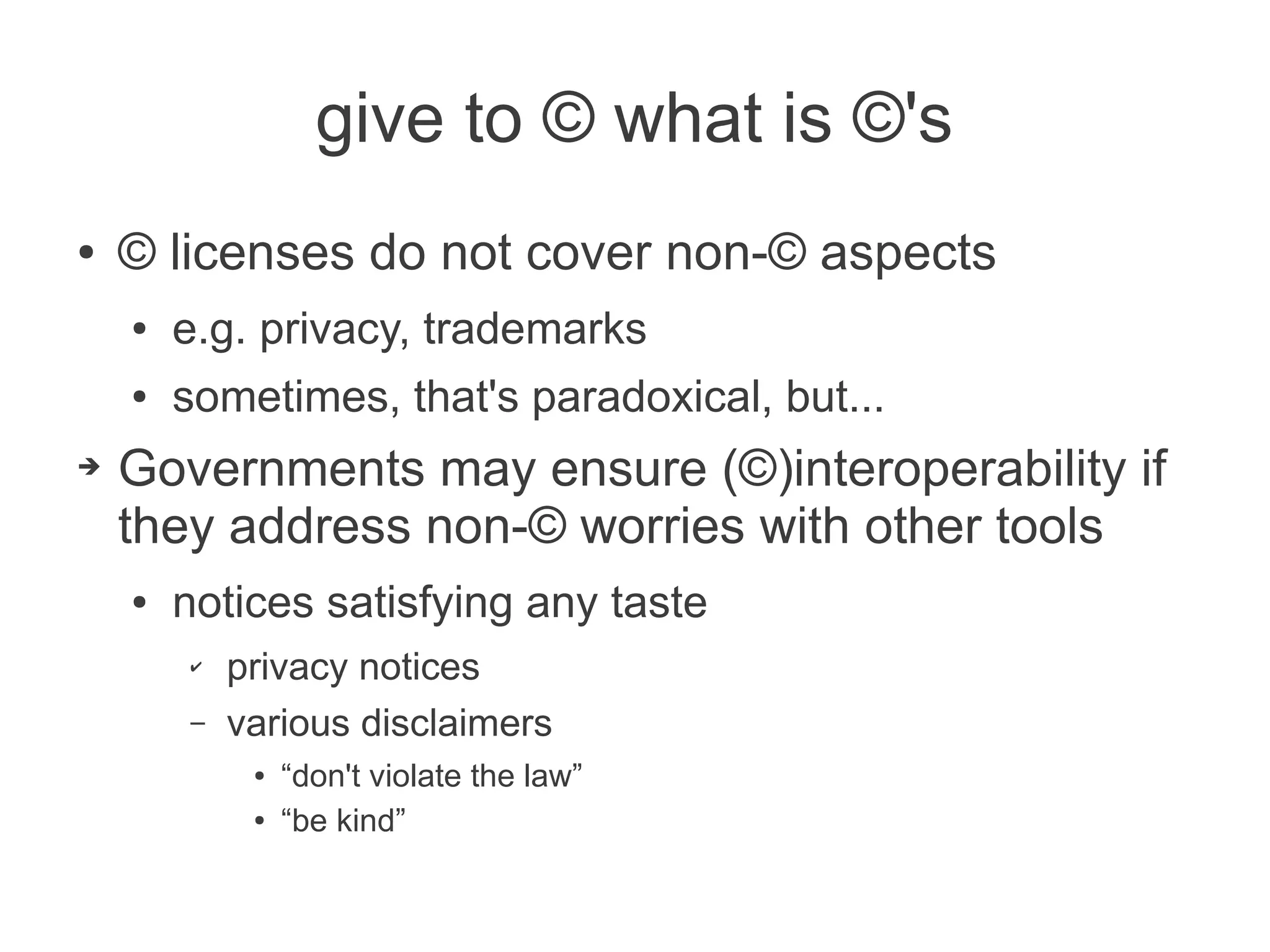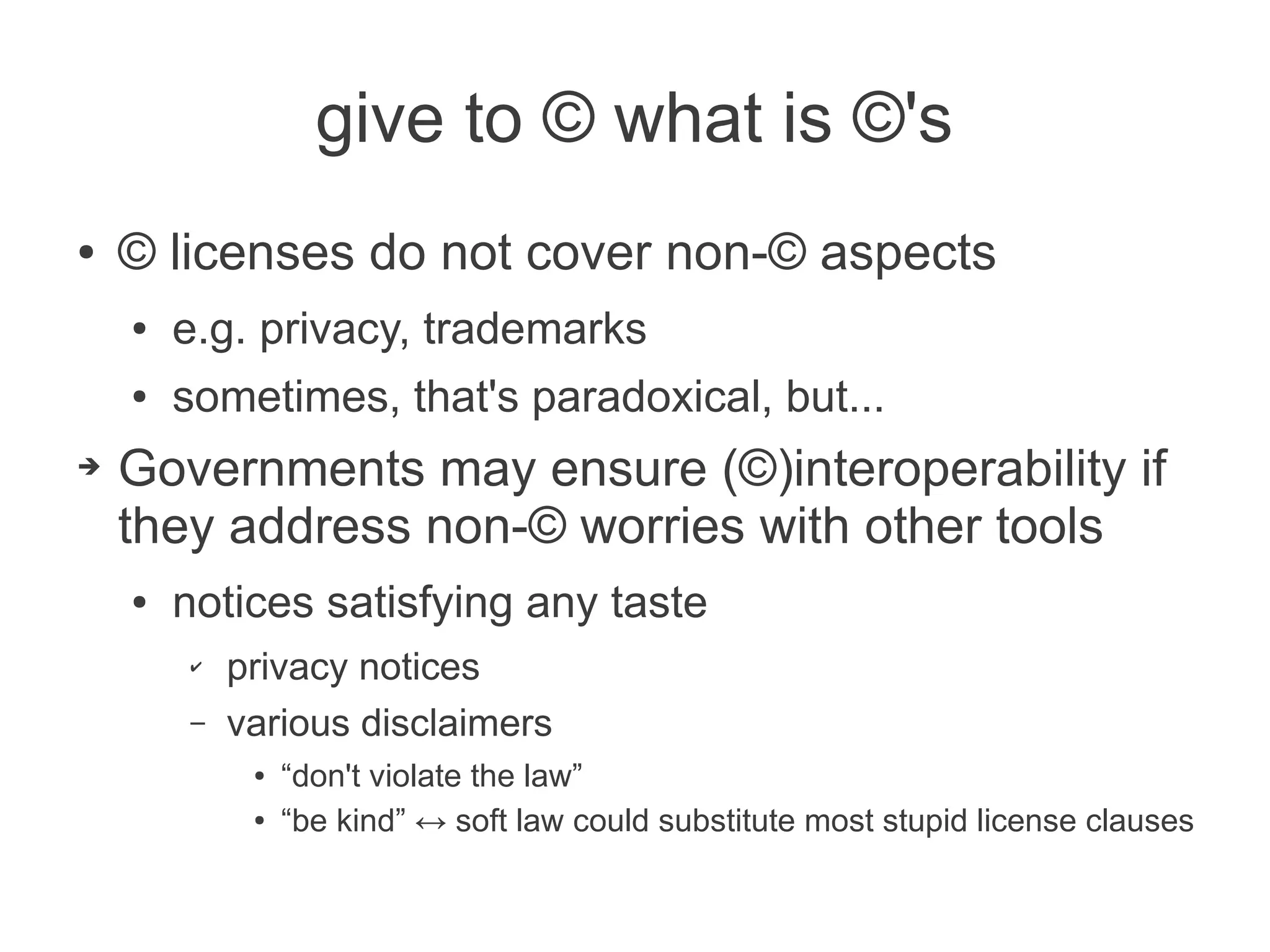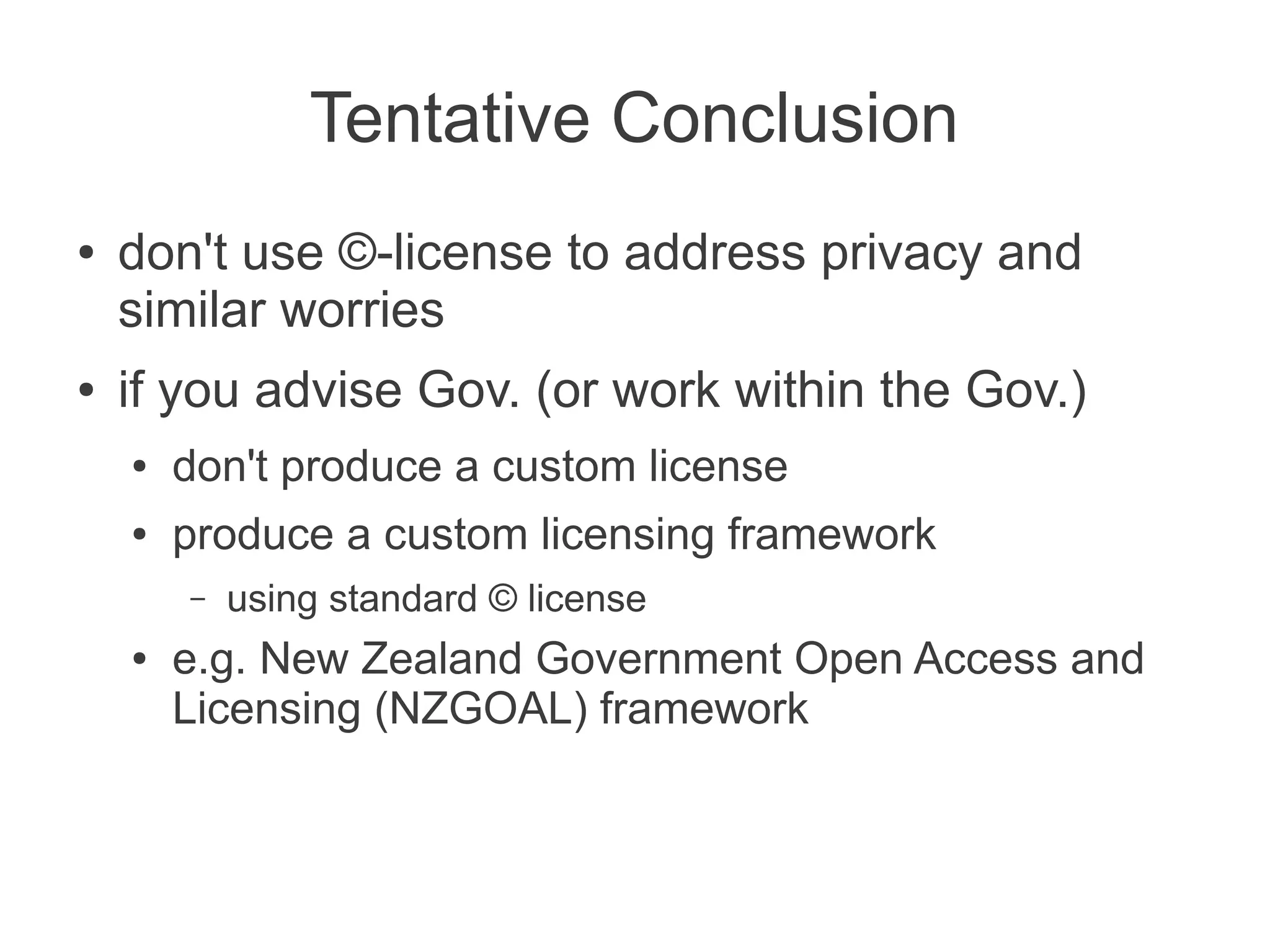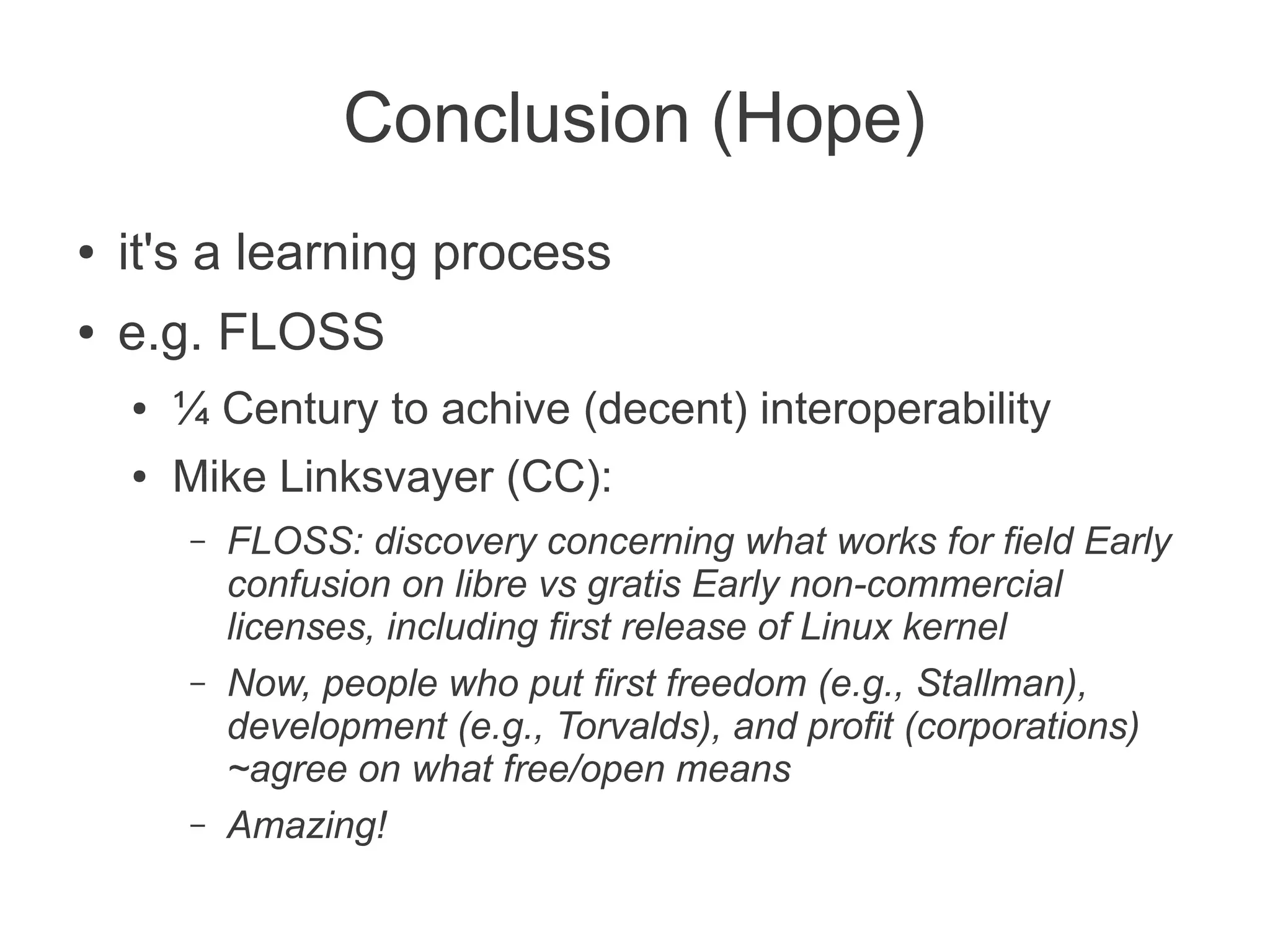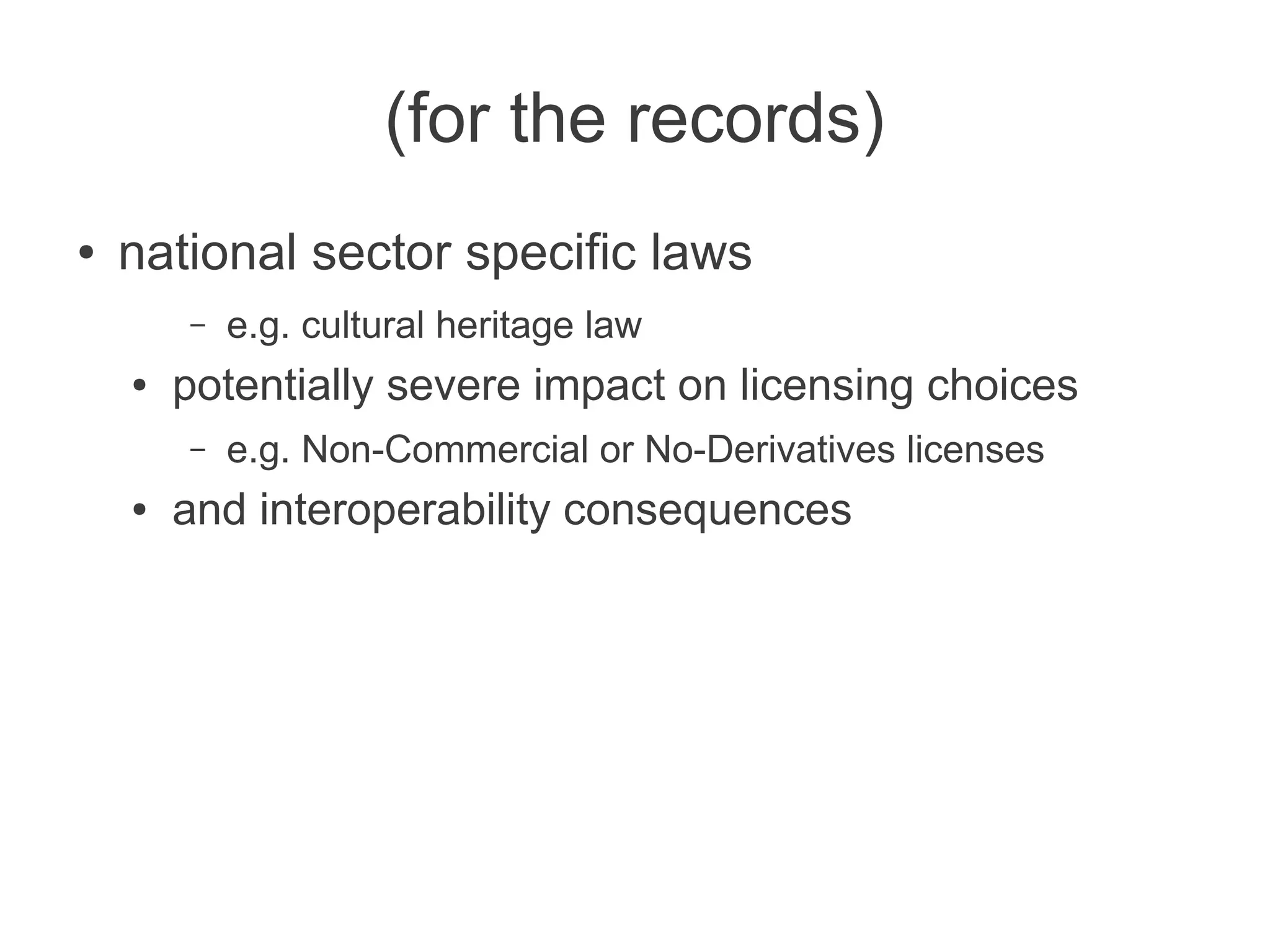This document discusses license interoperability and the lack thereof between different license models. It notes that public domain and Creative Commons Attribution licenses allow for the highest degree of interoperability, while share-alike licenses and those with non-commercial clauses present problems and legal uncertainty. National open data licenses also attempt to address interoperability but still face issues around privacy, trademarks and other concerns beyond just copyright. Overall license complexity and the interaction of copyright with other laws pose challenges to achieving full legal interoperability between works.
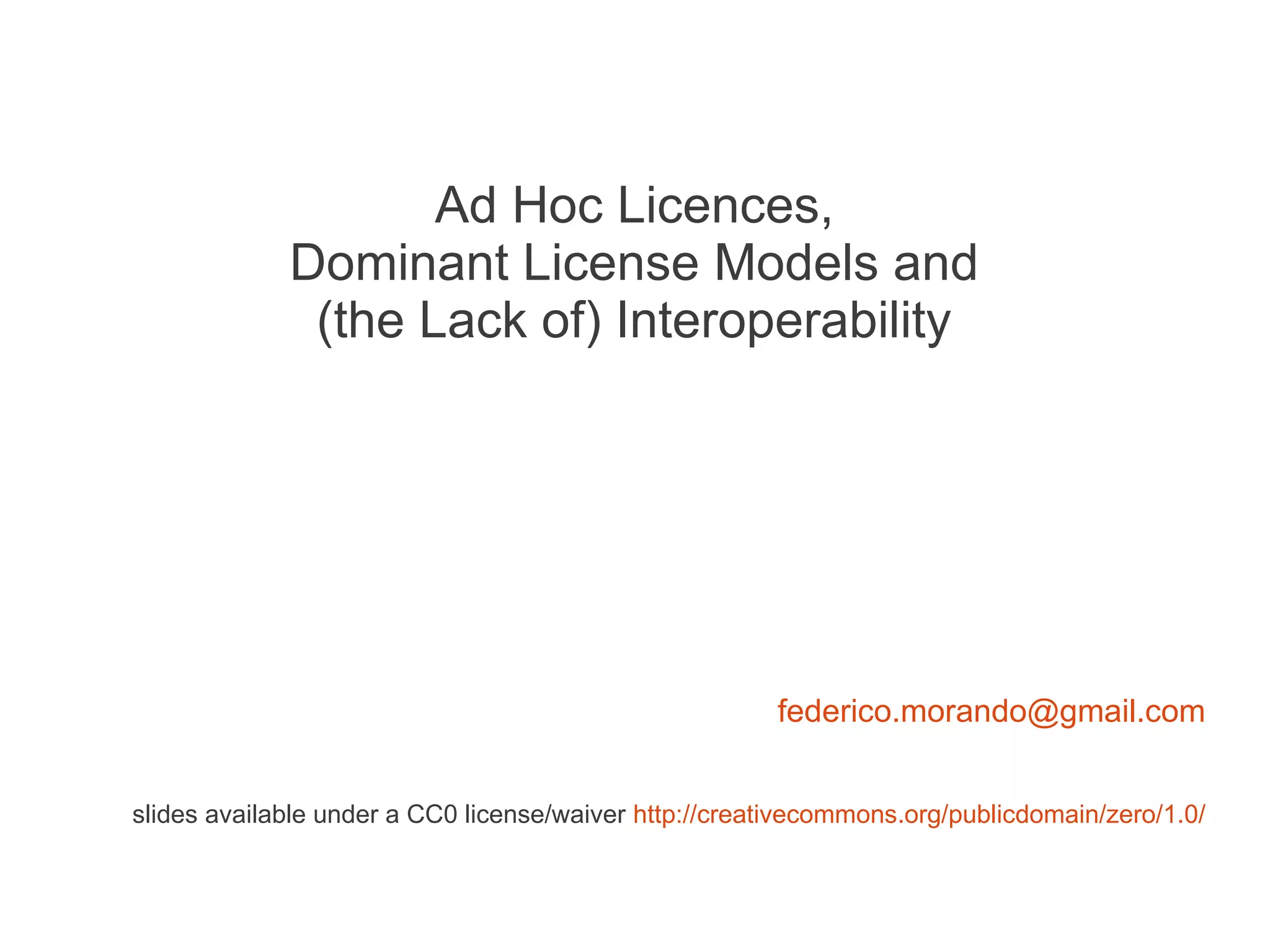
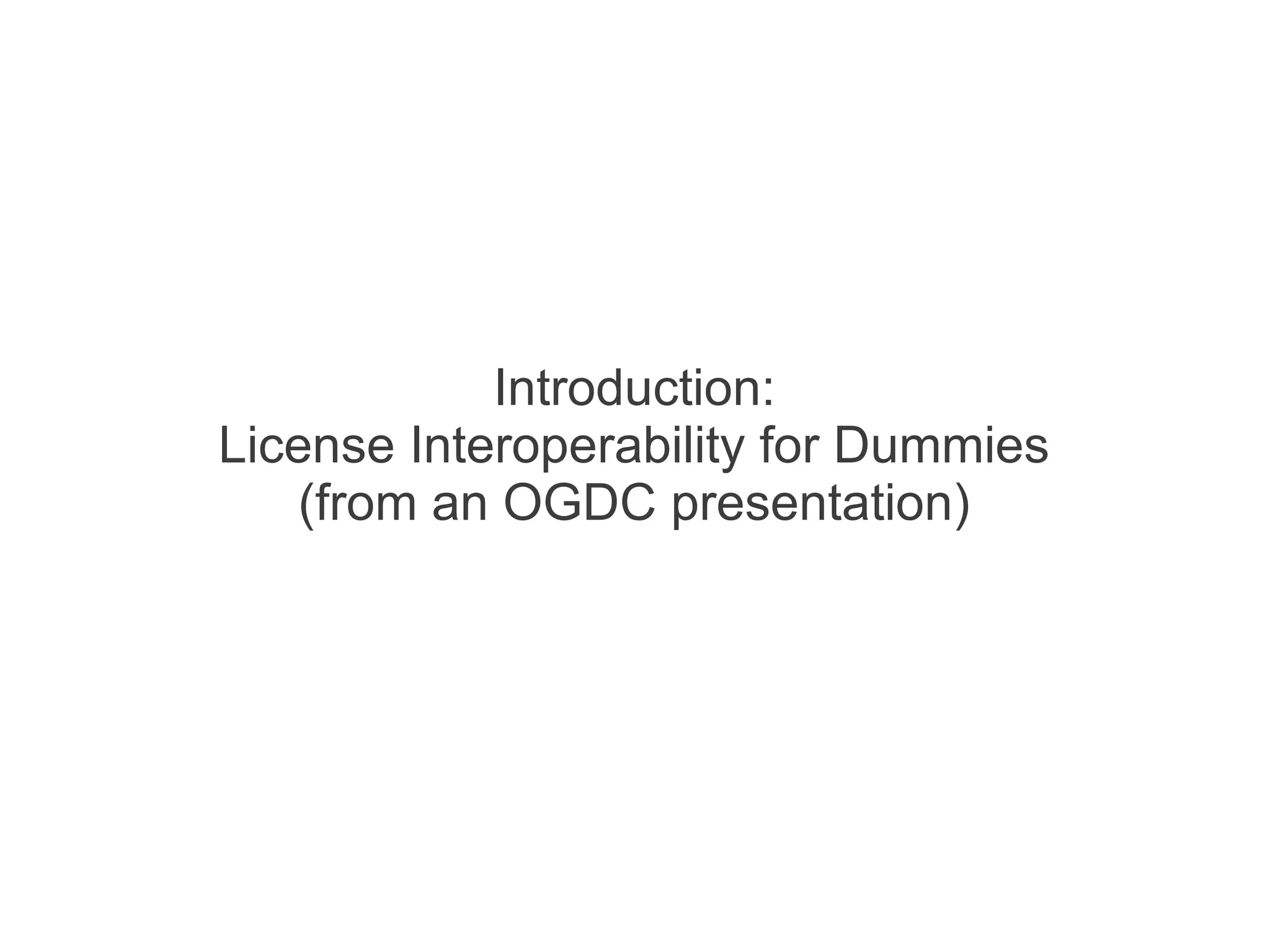
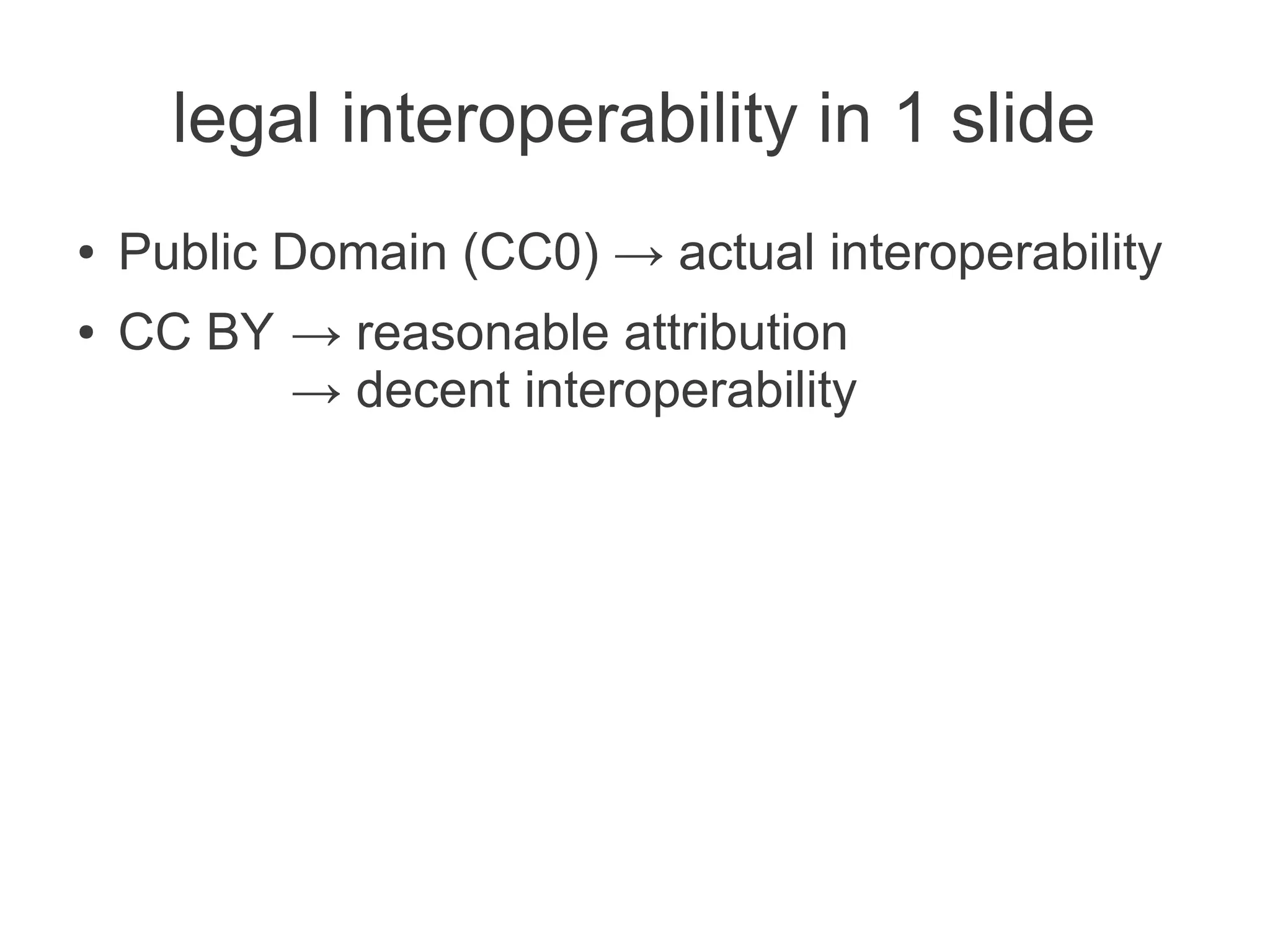
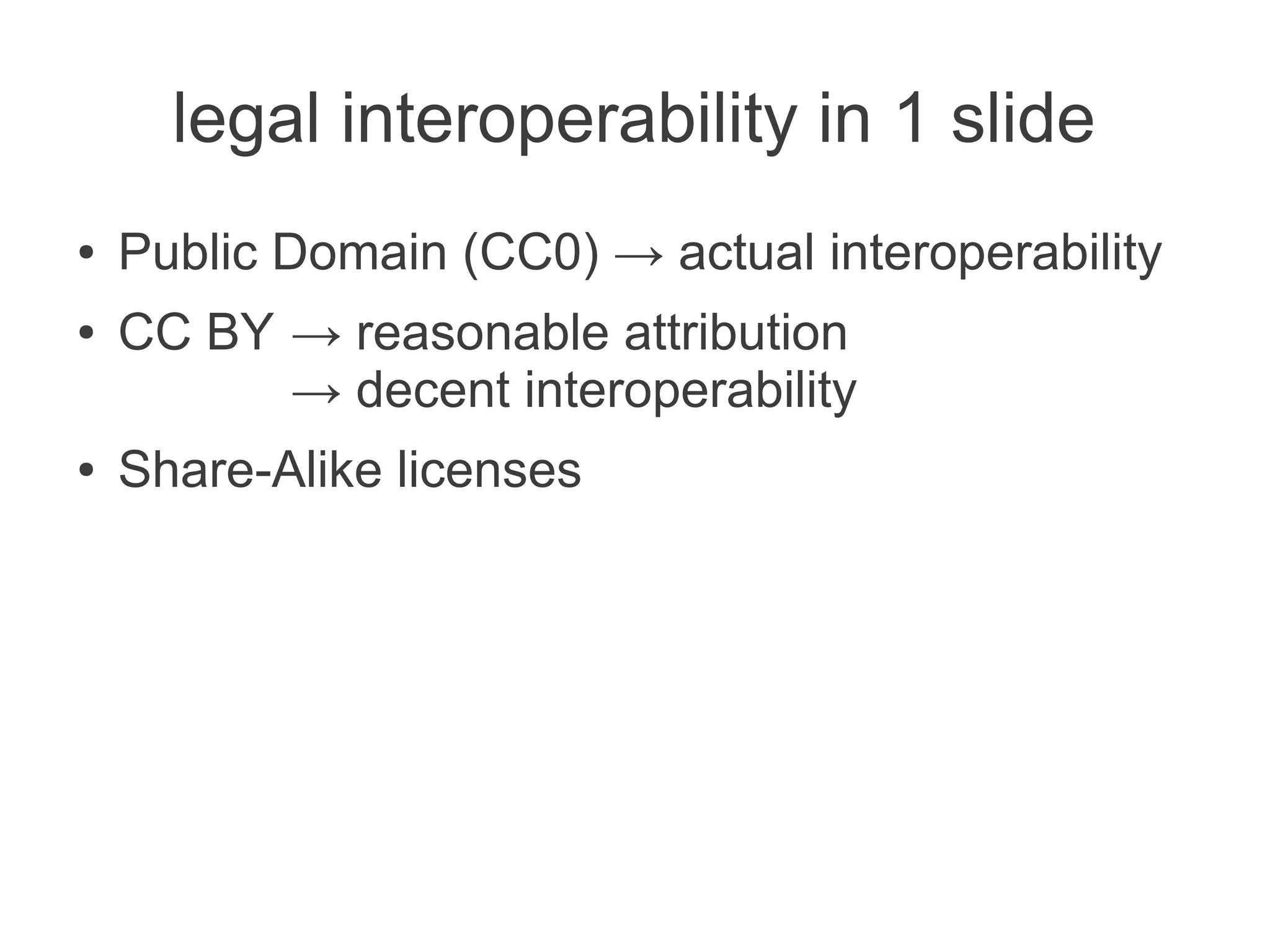
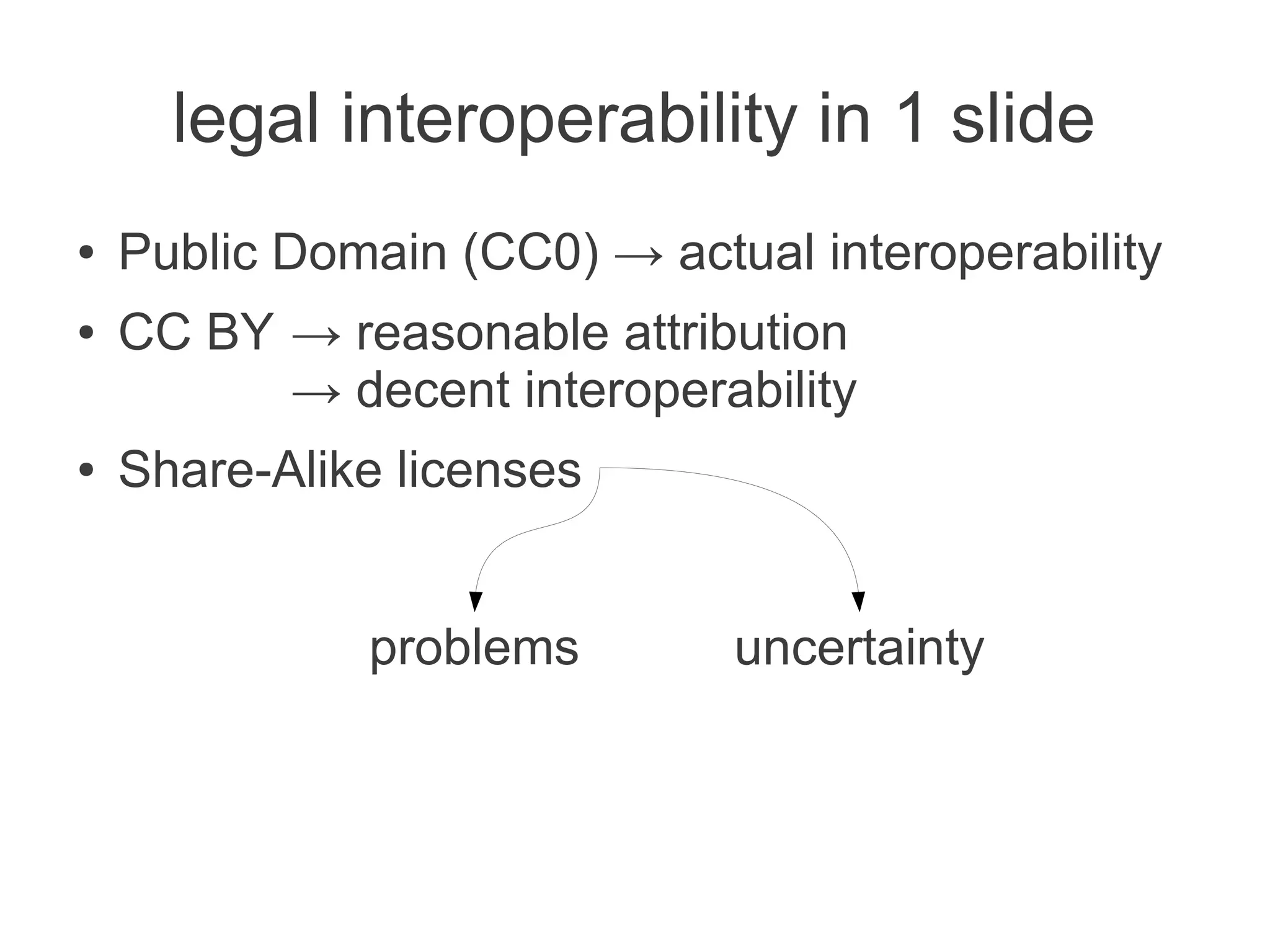
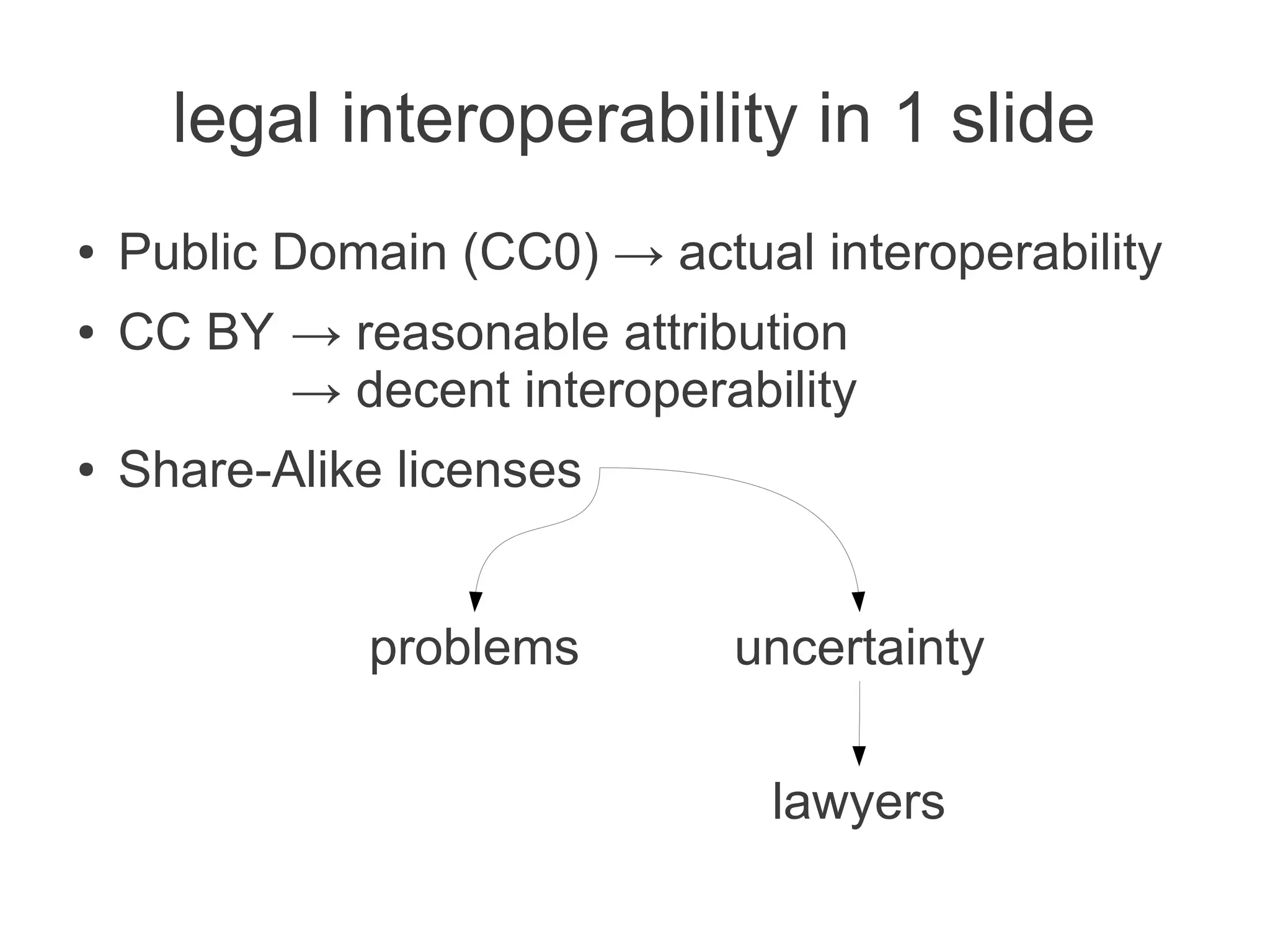
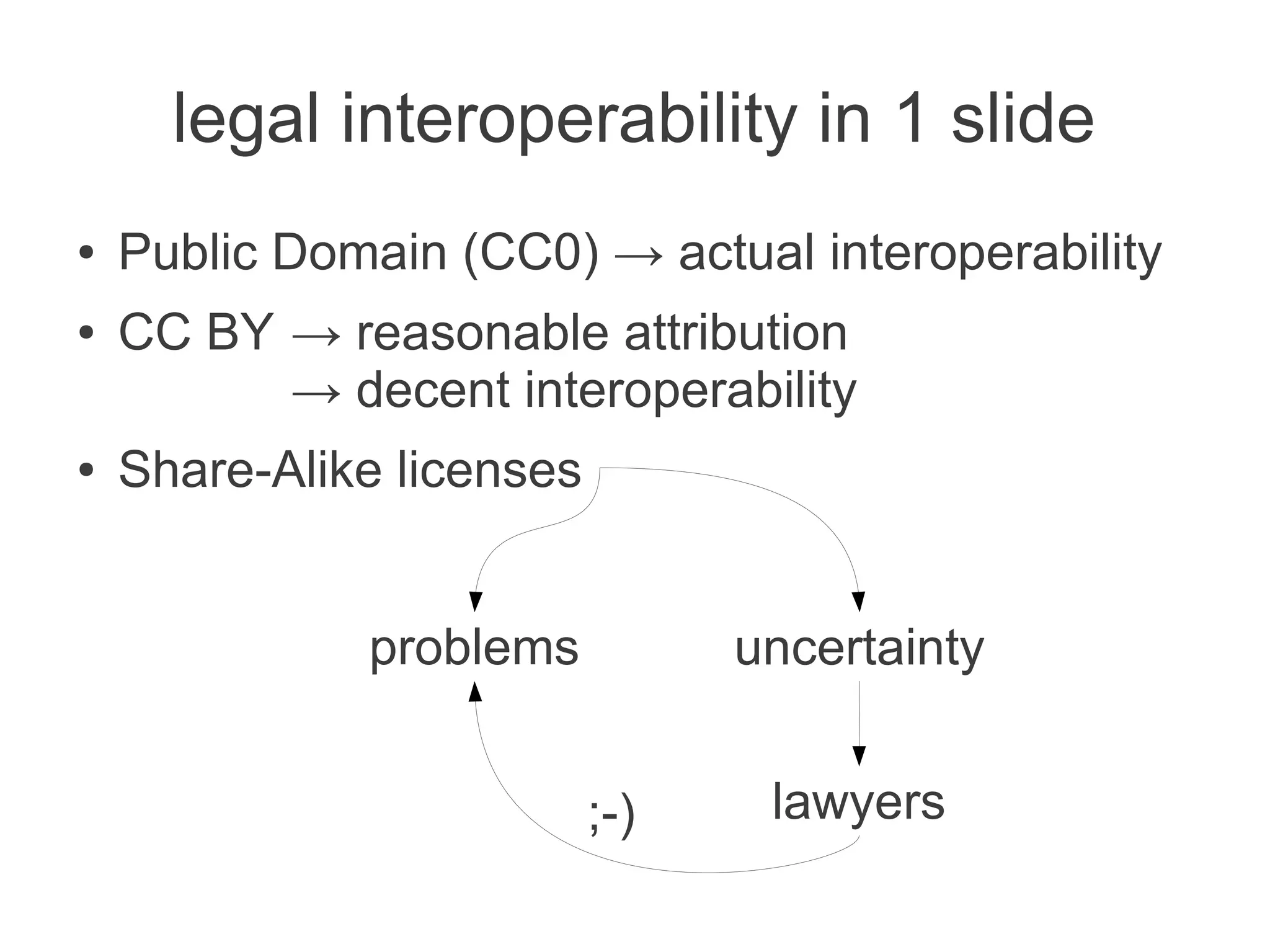

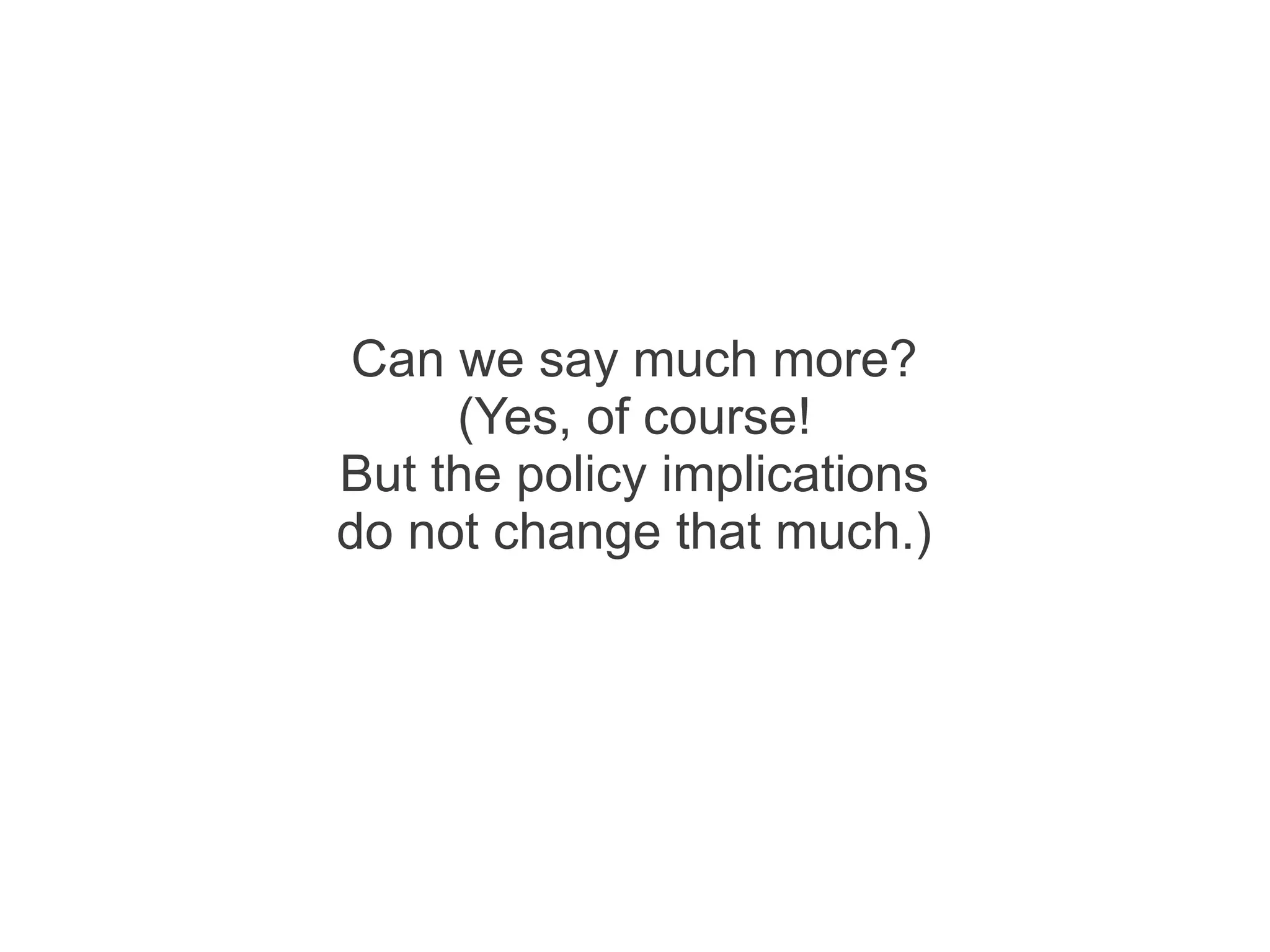
![(Data) License Landscape
● (FLOSS Licenses used for data)
● Creative Commons Licenses
● standard general purpose CC licenses
– BY; (SA); [NC]; {ND}
– 3.0 EU licenses (waiving sui generis database right)
● CC0 waiver (with fallback clauses → broad license)
● Open Data Commons Licenses
● for (open) data only
– PD dedication (with license fallback), BY or SA (first to be produced, targeting communities)
● National (open government) data licenses
● UK: OGL (BY +)
● FR: License Ouverte (BY +)
● IT: IODL (beta ver.: BY-SA-NC +; 1.0: BY-SA +; 2.0: BY +)
● ...](https://image.slidesharecdn.com/20111021-budapest-morando-legalinteroperability-120522070844-phpapp02/75/LAPSI-legal-interoperability-updated-10-2048.jpg)
![National licenses & std worries
● UK OGL, Italian Open Data License (IODL),
etc.
● ensure [or “take all reasonable steps so”] that you
do not use the Information in a way that suggests
any official status...
● ensure that you do not mislead others or
misrepresent the Information or its source...
● ensure that your use of the Information does not
breach the Data Protection Act...](https://image.slidesharecdn.com/20111021-budapest-morando-legalinteroperability-120522070844-phpapp02/75/LAPSI-legal-interoperability-updated-11-2048.jpg)
